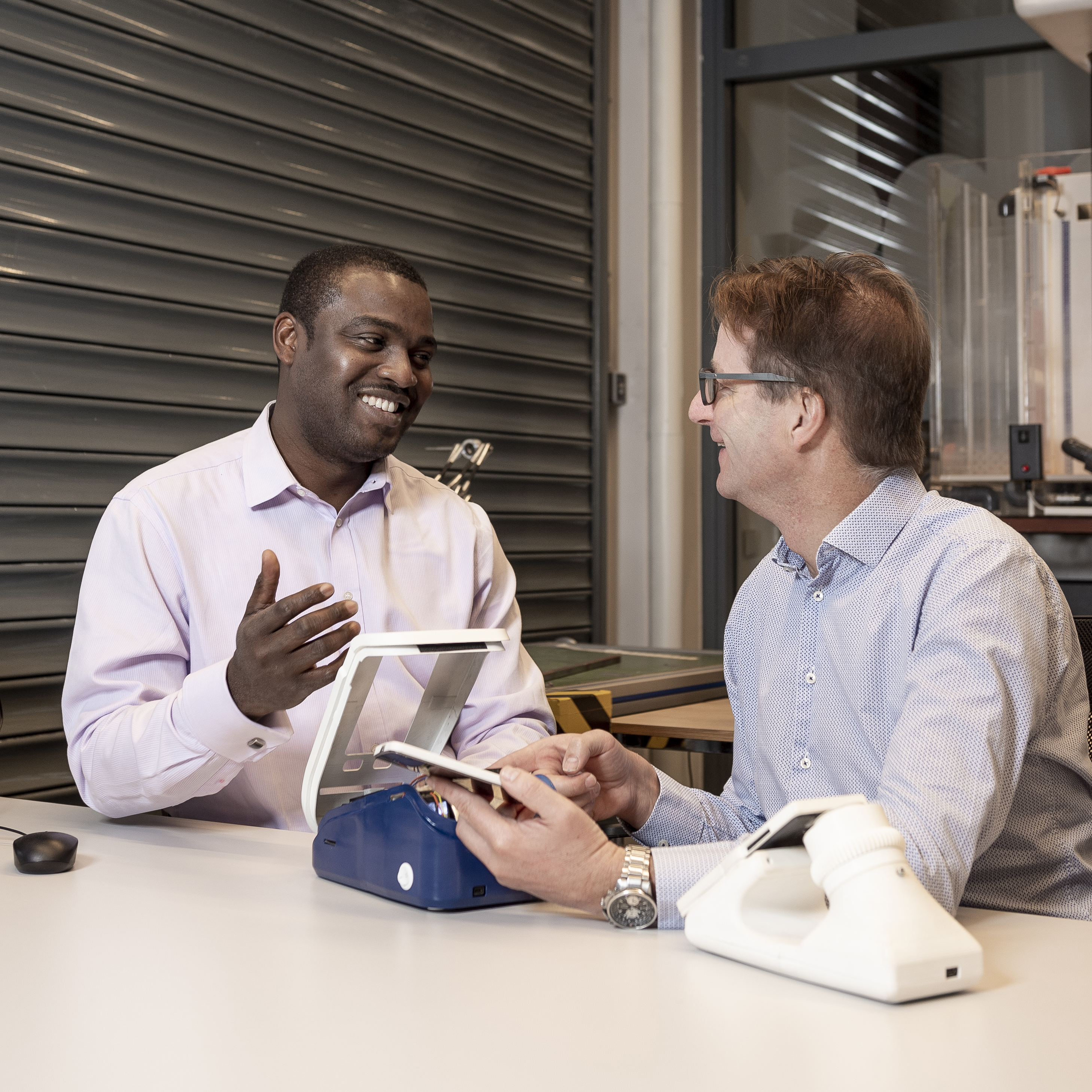New research programme for urgent challenges in Africa
Five Dutch universities – led by TU Delft – will appoint fifty-one PhD students to carry out solution-oriented research for and with the African continent. They will focus on urgent challenges such as climate change, the energy transition, affordable global healthcare, access to clean water and sustainable urban development. The GROW research programme (Graduate Research on Worldwide Challenges) will start in summer 2024 and half of the funding (6.9 million) will be provided by the European Union. The aim is for young research talent to bridge the gap between Africa and the Netherlands. The five universities involved are Leiden University, the Vrije Universiteit Amsterdam, Amsterdam University, Erasmus University Rotterdam and TU Delft. TPM researchers also participate as supervisors in this programme. The application portal for PhD candidates is now open.
Co-creation with African partners
For the GROW programme, the five Dutch universities have joined forces with 22 academic partners from Africa and 17 social partners with a wealth of Africa-related experience. Together, they will look for PhD students from all over the world to carry out scientifically challenging research in the Netherlands into the underlying associated challenges associated with the UN’s Sustainable Development Goals. The research will also include developing and testing possible solutions. The collaboration between all the partners shall further strengthen the link between the Netherlands and the African continent.
Scientific impact for a better society
“The GROW programme is an important step for the university in order to make a global impact with pioneering science,” says Tim van der Hagen, Rector Magnificus TU Delft. “In recent years in our TU Delft | Global Initiative, we have seen research collaboration with partners from Africa or other Low- and Middle-Income Countries lead to important new insights and also to the actual implementation of solutions that have contributed towards achieving the Sustainable Development Goals here in the Netherlands and in the other countries. We are pleased that this is now going to be expanded through the GROW programme, not only in terms of numbers of PhD students but also in an interdisciplinary context with our partners from Leiden, Rotterdam, Amsterdam and Africa.”
The GROW programme is an important step for the university in order to make a global impact with pioneering science
Tim van der Hagen, Rector Magnificus TU Delft
Pioneering and cross-border research in and with Africa
Nick van de Giesen, initiator of the GROW consortium and professor of Water Management at TU Delft, concurs: “We are very keen to get started, with more than 50 new PhD students, many of whom will be coming from Africa. It will enable us to bring knowledge and experience of the continent to Dutch science. With more than 100 supervisors from the Dutch universities and the enthusiastic support of businesses, governments, NGOs and African universities, we firmly believe that we can offer the PhD students extremely interesting research positions and that their work will lead to innovations and knowledge that is badly needed in order to address the major social challenges facing the world.”
We are very keen to get started, with more than 50 new PhD students, many of whom will be coming from Africa. It will enable us to bring knowledge and experience of the continent to Dutch science.
Nick van de Giesen, initiator of the GROW consortium and professor of Water Management at TU Delft
Mutual interest
Inspiration for the GROW programme is based on previous successful research and innovations of African PhD students working on SDG-related research. One example is the work of Karlheinz Samenjo from Cameroon. He came to Delft in 2019 on a scholarship to take a Master’s degree in Industrial Design. After graduating, he was able to work as a PhD student in the Healthcare4All programme within the same faculty. He discovered from a needs assessment carried out among local healthcare partners in Kenya that there was a lack of extra-long injection needles for administering pain medication to women during gynaecological procedures. He developed an alternative that can be supplied by the local manufacturing industry. Karlheinz specifically designs solutions which are of a high quality but are low-cost and low-maintenance, enabling them to be (re)used in hospitals with limited resources and over a long period of time. In the meantime, such solutions are also starting to attract interest from Dutch healthcare parties on account of costs and circularity objectives. He is currently investigating how to launch this device on the market, by working in collaboration with the partners in Kenya and the local government.
TPM is looking for GROW PhD students
The Dutch and African partners are now recruiting candidates together. TPM supervisors involved in GROW are: Saba Hinrichs-Krapels, Tina Comes, Gideon Ndubuisi, Machteld van den Broek, Victor Scholten, Jasper Verschuur, Cees van Beers, Jaco Quist and Dap Hartmann. Together they offer expertise in the fields of: strengthening health systems, energy transition or circular economy, implications of climate change on refugee settlements, innovation and transition studies, entrepreneurship and early adoption of new technologies, economic geography management and frugal innovation. What makes our faculty unique is that we combine our knowledge of engineering, social sciences and humanities to create this integrated approach to socio-technical systems. This makes our teaching and research not only attractive, but also highly relevant.
Do you want to make a real contribution to understanding and addressing the urgent challenges on the African continent with high quality and novel interdisciplinary research? Please apply through: www.growinresearch.eu and select the above supervisors to view their expertise. Applications can be submitted online from 1 December till 31 January 2024. From summer 2024, the PhD students will get started on their pioneering and impactful research, as part of the network of scientists and social parties.

